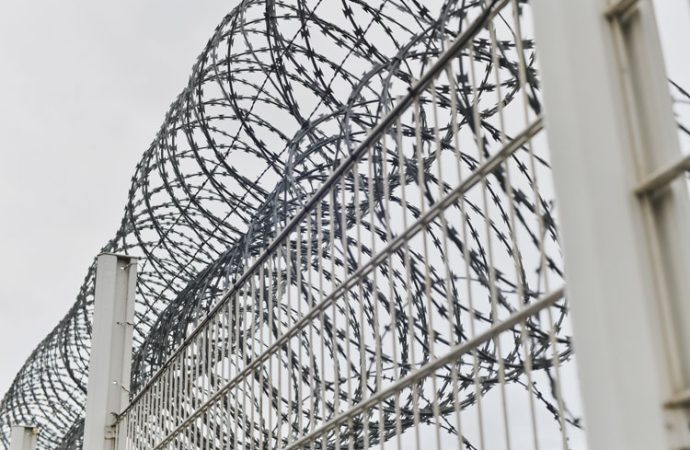Author Recent Posts Zainab Shehzadi Latest posts by Zainab Shehzadi (see all) Navigating U.S. Pressure to Curtail Relations with Iran – November 15, 2024 26th Constitutional Amendment and Trichotomy of Powers – November 11, 2024 Theory of separation of powers: Is it possible in Pakistan? – October 30, 2024
As Pakistan navigates one of the most complex challenges of its foreign policy, Pakistan must prioritize its sovereignty and national interests while maintaining a balance in relations with Iran and U.S. Iran, located in the west of Pakistan, is the first country to accept Pakistan and both countries share historical and regional ties with each other. Pakistan needs to maintain good relations with its neighbouring country in order to preserve its longstanding ties with Iran. But Iran has been the victim of U.S. sanctions since the 1979 Iranian revolution. The country involved in any kind of relations with Iran undergoes pressure of being the victim of U.S. sanctions as well. Pakistan also finds itself at the cross-roads when it comes to maintain relations with Iran with the navigation of U.S. pressure.
Pakistan has historical connections with Iran grounded in regional, cultural and economic ties shared by both countries. The Shah of Iran was the first head of state to visit Pakistan after its independence from Indian subcontinent in 1947. The friendly relations between the two countries did not stop here. Both countries also supported U.S. in cold war against USSR and enjoyed friendly relations with each other because both states were backed by the same super power at that time. Iran also supported Pakistan in its wars against India in 1965 and 1971. After the Iranian revolution in 1979, Iran restrained its ties with U.S. and Pakistan was still supporting U.S. in the cold war. Pakistan had to maintain its relations with Iran as well because of the cultural and economic ties it was sharing with Iran. Iran has been the victim of international sanctions since 1979 because of its nuclear program and anti-west ideology. Pakistan also faces the pressure of undergoing international sanctions if it keeps evolving its ties with Iran.
The evolving relations of U.S.-Iran also complicates Pakistan to keep a balance in relations with both countries. U.S. always tried to isolate Iran with the help of international sanctions under various administrations since 1979. On the other hand, Pakistan receives military and economic aid from the U.S, making it a crucial ally in this regard. Keeping in view this complicated scenario of U.S.-Iran relations, Pakistan finds it a daunting task to maintain a balance in its relations with both countries while safeguarding its national interests.
The Iran-Pakistan gas pipeline, often referred as the potential game-changer for Pakistan’s energy security also holds the significant position in economic relations with Iran. Started in 2013, the gas pipeline is supposed to fulfill the energy shortages in Pakistan. But the gas pipeline project is stuck for a decade because of the navigation of international sanctions on Pakistan. The major reason behind the delay of this project is the warning of U.S. department to Pakistan for keeping its business deals with Iran after Ibrahim Raisi’s visit to Pakistan in 2024. But the economic deals with Iran hold potential economic benefits for Pakistan, particularly during the contemporary time of economic challenges for Pakistan. The U.S. sanctions on Iran present a risk for Pakistan to maintain its economic ties with Iran, but they also present an opportunity for Pakistan to assert its autonomy in its foreign policy decisions at the same time. By prioritizing its economic programs with Iran and taking autonomous foreign policy decisions, Pakistan can solidify its position of mediator between Iran and the U.S.
The security threats associated with terrorism in Iran and Pakistan also necessitate security cooperation between both countries. Ignoring these security threats by both countries has resulted in tit-for-tat missile attacks in the territories of each other in January 2024. The major reason behind these tit-for-tat missile attacks was the threat associated with terrorism activities being conducted inside the territories of both countries. The communication gap and lack of intelligence sharing between both countries led to unstable security situation in the region. There is a need of collaborative efforts and intelligence sharing between both countries for enhancing stability in the region. Ignoring these security dynamics between Pakistan and Iran would not only undermine Pakistan’s own safety but could also enhance the threats of regional instability.
In conclusion, restraining longstanding relations with Iran against the backdrop of U.S. pressure is one of the most delicate challenges for Pakistan in its intricate web of international relations. Pakistan stands at a pivotal moment of its foreign policy in this regard. If Pakistan prioritizes dialogue, economic cooperation and its national interests, Pakistan will find a pathway of fostering its regional stability and safeguarding its sovereignty at the same time. The challenge is complicated, but taking tough decisions aligned with its national interests will define Pakistan’s sovereign role in rapidly changing geopolitical landscape for years to come.
- Navigating U.S. Pressure to Curtail Relations with Iran - November 15, 2024
- 26th Constitutional Amendment and Trichotomy of Powers - November 11, 2024
- Theory of separation of powers: Is it possible in Pakistan? - October 30, 2024





















Leave a Comment
Your email address will not be published. Required fields are marked with *